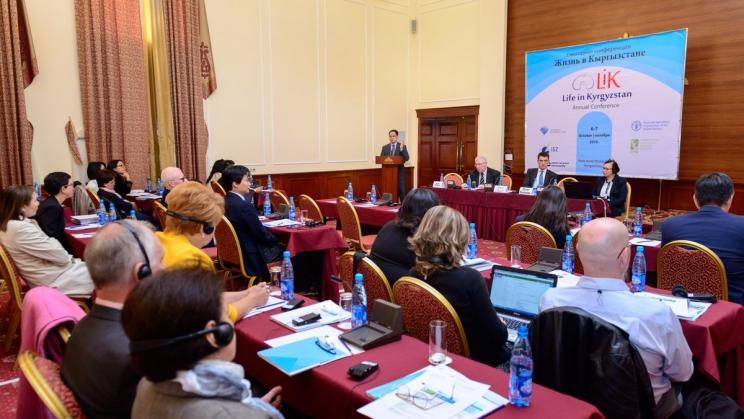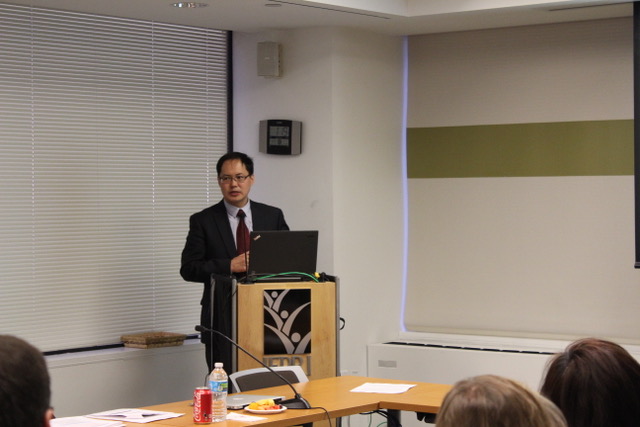
SIPRI Senior Researcher Dr Damir Esenaliev presented work on peacebuilding impact evaluation and social cohesion at four events in Washington D.C. The events focused on the latest research findings and lessons on key topics of socio-economic development in Kyrgyzstan and Central Asia.
At the flagship events at the World Bank, Dr Esenaliev presented joint work on social cohesion in Kyrgyzstan, which investigates whether community-driven development strengthens social cohesion. The results will be presented after the final data has been collected at the end of 2017.
He also discussed job quality in Kyrgyzstan and introduced fine-tuning of a job quality index. This research indicates that men and urban workers have ‘better’ jobs, and that 'good' jobs are highly correlated with life satisfaction for wageworkers, but not those who are self-employed.

An event at George Washington University featured SIPRI’s impact evaluation of the peacebuilding ‘LivingSideBySide' programme, aimed at building ethnic tolerance and conflict-solving skills in young adults. SIPRI’s analysis found positive statistical evidence on key intended impacts, such as greater trust of other social groups and increased cooperation, but some negative outcomes in attitudes and perceptions.
Finally, at the international Food Policy Research Institute (IFPRI), Dr Esenaliev presented a joint econometric study that found a positive welfare effect on the agricultural income and total household income of households that export goods.
SIPRI continues its work on evaluating social cohesion mechanisms in community-driven development and refining the impact evaluation results of the LiveingSideBySide peacebuilding programme. It also continues contribution to research dissemination and capacity building in the Central Asian region.
Funding for these projects comes from the World Bank, the Aga Khan Foundation, IZA/DFID, and the International Initiative for Impact Evaluation (3ie).